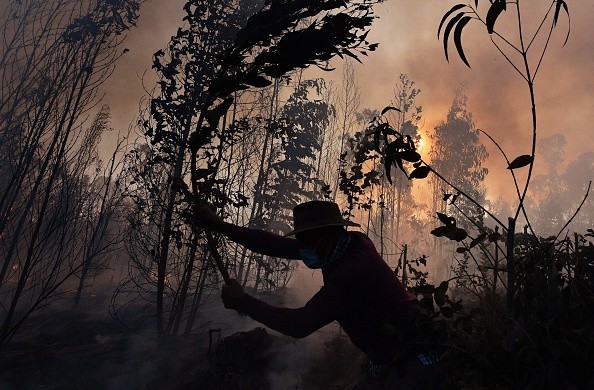Executive Director of UN Environment Programme Inger Andersen reported that The Frontiers Report recognizes and offers solutions to three environmental issues that call for attention and action from governments and the public at large.
Wildfires are burning more severely and more often, urban noise pollution is growing into a global public health menace, and phenological mismatches - disruptions in the timing of life-cycle stages in natural systems - are causing ecological consequences.
Our 🆕 #Frontiers2022 report highlights emerging issues for people and for planet.
— UN Environment Programme (@UNEP) February 17, 2022
It identifies
🔴 urban noise pollution
🔴 phenological shifts
+
🔴 wildfires
as areas that need urgent attention, and provides solutions to address them: https://t.co/PnBm1pzu5F pic.twitter.com/843z95yzoI
Deadly wildfires

According to the UN News report outlines, an average of 423 million hectares (almost the size of the European Union) on Earth's land surface burned between 2002 and 2016, with dangerous wildfires more often, more intense, and more.
Long-term human health impacts not only wildfire fights, evacuees, and homeless people, but also on people with existing medical conditions, women, children, the elderly, and the poor.
This is because of weather alternates, such as warmer temperatures and drier situations with greater common droughts.
A land-alternate is every other chance factor, such as business logging and deforestation for farms, grazing land, and increasing cities.
In addition to the motive for the proliferation of wildfires is the competitive suppression of herbal hearthplace that's crucial in a few herbal structures to restrict the quantities of flammable material, and beside the point hearthplace control regulations that exclude conventional hearthplace control practices and indigenous knowledge.
Noise Pollution

Unnecessary and long-lasting loud noises from road traffic, railroads, or leisure activities impair people's health and well-being.
These include chronic stress and sleep disorders that lead to metabolic disorders such as severe heart disease, diabetes, hearing impairment, and poor mental health.
Noise pollution has already caused 12,000 premature deaths annually in the EU, affecting one in five EU citizens.
It exceeds the acceptable noise level in many cities around the world, including Algiers, Bangkok, Damascus, Dhaka, Ho Chi Minh City, Ibadan, Islamabad, and New York.
Life cycle rhythm disruption
Phenology is the timing of routine existence cycle stages, pushed via way of means of environmental forces, and the way species interacting inside an ecosystem, reply to converting situations
Plants and animals in terrestrial, aquatic, and marine ecosystems use temperature, day length, or rainfall as cues for whilst to undergo fruit, migrate or remodel in different ways.
Phenological shifts in plants in reaction to seasonal versions may be hard for meal manufacturing withinside the face of weather change.
Shifts withinside the phenology of commercially crucial marine species and their prey have sizeable results for inventory and fisheries productivity
How can we combat these three crises?
According to the reports of the UN Environment Programme, there are ways to combat these kinds of environmental crises.
When it comes to stemming wildfires, the record requires extra funding in lowering wildfire risks; growing prevention and reaction control approaches; and refinancing far-off sensing capabilities, including satellites and radar.
To noise pollutions, the report encourages city planners to prioritize noise reduction by investing in urban infrastructure.
This creates a positive soundscape for the city, such as tree belts, green walls, and more green areas.
This also provides multiple health benefits.
To life cycle rhythm disruption, the report flags the critical significance of conservation goals, which include preserving appropriate habitats and ecological connectivity, strengthening the integrity of the organic range, and coordinating worldwide efforts alongside migratory routes.
© 2025 NatureWorldNews.com All rights reserved. Do not reproduce without permission.





